Ford has made its fair share of news over the past few years due to the fact that the automaker has issued more recalls than any of its peers over that timeframe, and things haven’t exactly improved on that front through the first half-plus of 2025, either. As Ford Authority previously reported, Ford’s Chief Operating Officer, Kumar Galhotra, has said that 2025 model year initial quality has improved, however, and later added that many of the recalls issued this year are part of its “intensive strategy to quickly find and fix hardware and software issues and go the extra mile to help protect customers.” Regardless, he isn’t pleased with Ford’s current recall levels, either.
“Our latest zero- and three-months in-service metrics are tracking towards our strongest performance in over 10 years,” Galhotra said during Ford’s Q2 2025 earnings call. “The second part of warranty cost are FSAs, cost associated with recalls and customer satisfaction items. We are not satisfied with the current level of recalls or the number of vehicles impacted. We are working to reduce the cost of these recalls. For example, we’re leveraging AI solutions to improve parts’ traceability to help minimize the scope of recall units.”
Artificial intelligence is one of several ways that Ford is working to cut down on quality issues and recalls. Those include completing more rigorous procedures during new vehicle launches, along with implementing tougher tests to spot problems and fix them earlier in that process. The automaker hired 300 specialists to help with engineering and design, and changed its supply chain operations to ensure that it receives higher quality parts – not to mention benchmarking Toyota’s best practices as they pertain to manufacturing.
Additionally, Ford management are completing what’s known as Gemba walks, which occur when leaders from companies travel to locations where physical work is performed – in this case, places where parts and vehicles are built – to observe that work, better understand it, and identify potential areas of improvement while interacting with employees, rather than simply relying on second-hand information from others.

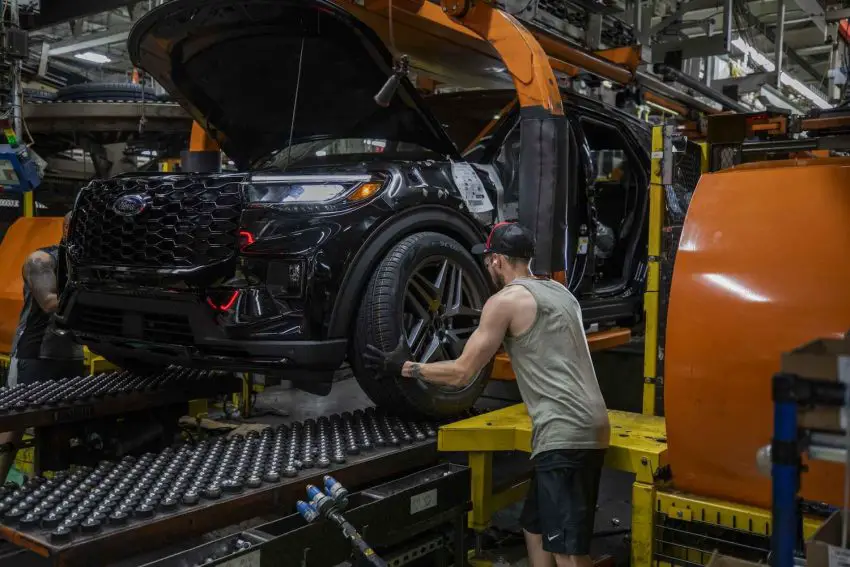




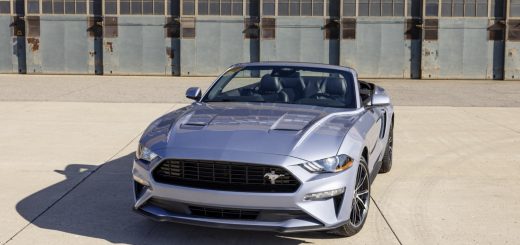
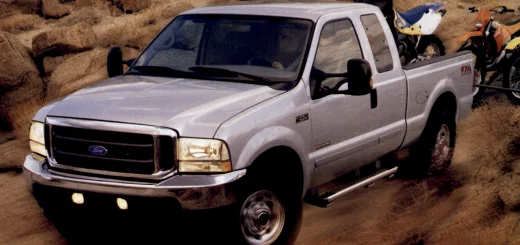

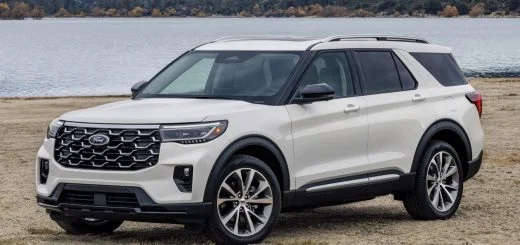




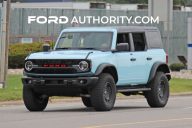


Comments
Improving with over 100 YTD and no one else remotely close?
“Ford Not Satisfied With Current Recall Levels”
Neither is anyone else.
How about less talk and more action.
That’s if you’re up to it Jim
Things are not improving….Customers and probably former customer are then one who not satisfied…Engineering is big problem that Ford has…designs…rubber type belts for oil pumps., water pumps turned by timing chain….complicated Ecoboost engines that provide power and give more problems…and not giving a customer a simplier lower powered engine option…They need more focus on the today customer not the down the road future customer ,lighten up on the ev…and manhattan project addressing quaility
Completely agree! 👍
The F150 doesn’t seem to have a problem with the belt driven oil pump (that seems to be mostly the Euro EB cars) on the Coyote and those guys are using the AWD trucks as a Cowboy GT-R. As for timing chain driven water pumps, that has been industry practice for years. Toyota used it for years with their OHC fours (albeit belt driven, common wisdom was when it was time to replace the belts, replace the water pump since you’re in there and a bad pump could ruin the new timing belt – cheap insurance).
Not that I disagree with you about an internally driven water pump and I’m also not a fan of belt driven oil pumps (I prefer them driven off the crank snout) since I think they require mandatory and timely specific oil changes and like timing chains can wear quickly when an owner doesn’t do their due diligence. IMO, it’s always best to design to the worst most abusive customers, especially in the age of social media where everybody complains and nobody can verify but takes on faith the guy that complains how their oil pump belt driven engine blew up in 40k and that they “religiously” changed oil every 3k.
You shouldn’t be.
This is what happens when they sacrifice quality for quantity. Management is notified when there are issues and when we are out of parts and they continue to tell us to push them out. Jobs are over loaded, employees are before to work 60-70 hrs a week and they refuse to give the proper training always saying we don’t have the hours.
Or when margins trump everything. It doesn’t even have to be quantity over quality. Everybody beats on the engineers, bean counters, and line workers but never holds management responsible when they don’t want operating costs biting into their bonus. In my own experience we had a manager so cheap they sent ceiling fans to our location to help out in an unconditioned shop and the manager took two years and threat by the VPs to install the fans because he didn’t want the install biting into his bonus (sprinkler system revisions added to the cost of the install which was otherwise pretty cheap). Same thing happens in the auto industry all the time. Somebody comes out with an idea, get the engineers to do the work, bean counters work out the financials with the engineers and management comes in and wants to save a penny per unit so the bottom line looks better and everyone but the CEO suffers in the end so they can brag to their buddies how they put another 25 million in their portfolio to borrow against and not pay taxes on.
Thats what happens when you rely on inexperienced low paid engineers and AI to solve issues instead of gaining a work force with real world experience. Relying on degrees and computers to solve issues isn’t working Jim
90 percent of quality issues should be caught in preproduction testing. Using new untested materials should or designs should be tested to the extreme long before it’s sold to the public. I’m afraid the it will be ok attitude prevails at Ford that’s why the infamous DCT transmission was okayed for production. 100 plus recalls should be a embarrassment to everyone at Ford and not try to spin it as ” We’re making progress with quality control” which is quite obvious to everyone.
What dose the management team know about engineering and manufacturing?!?
Aren’t they just suites with overpriced educations?!?
You’re giving them field trips to the assembling center to see what?!?
A machine moving, and employee doing acrobats to hook up a
wiring-harness!!
You need to go back to basics, people want a car that lasts 100,000 to 300,000 mile not that dies as soon as the manufacturing warranty is up!
Well suits with MBAs which impress the owners (read investors). MBAs are the scourge of the manufacturing world. People with zero engineering experience but hold all the power and make all the decisions. The most successful companies take their brightest engineers and train them in business as they climb the ladder so that they understand the business from the ground up and can make an informed decision (doesn’t always work of course) or if the MBA is worth a damn, they put their office right into the engineering department and actively consult the engineers (Sergio Marchionne did that) stripping away all the yes men that could cloud their judgement.
So I’m guessing they didn’t trust us to figure that out all by ourselves!
Benchmarking Toyota’s manufacturing? You’ve been doing that for decades and haven’t learned a thing and if you have managed to learn anything you must really suck at implementing any of it. >100 recalls in less that 8 months? That’s inexcusable. Somebody should be fired. Looking at you Mr. Farley.
Low bidder wins the parts contract again! Stop telling us your an American company when the imported parts are junk and you are not even in the top 20 auto vehicles in US/Can parts content.
Ford’s recall record tells me their vehicles have excessive latent defects.
Known defects were rolling out of the factory with the sole intention of cranking up the numbers to please the shareholders, with the end game being we’ll just issue recalls and fix them out in the field, thanks a lot J. F. You really know how to F over your customers.
I am seriously considering unloading my 2018 Explorer for a Honda Pilot.